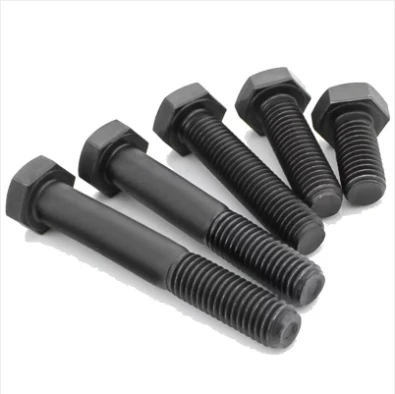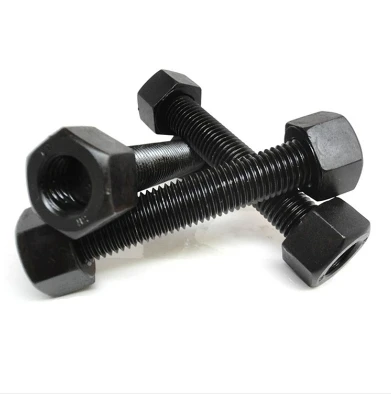bolts
ജനു . 09, 2025 12:10 Back to list
bolts
The world of bolts is an intricate and fascinating domain that reaches far beneath its simple exterior. As one delves into the intricacies of these seemingly simple objects, it's evident that bolts play a crucial role in the technological and structural stability of numerous applications across various industries. With over a decade of experience in mechanical engineering, I've witnessed firsthand the evolution and sophistication of bolt technology.
Underpinned by my years of direct involvement in large-scale infrastructure projects, I advocate the use of advanced bolt technology not just for its structural integrity but also for trustworthiness. The very fabric of construction safety is woven with the threads secured by bolts. Therefore, their reliability stands as a testament to engineering excellence. Ensuring that bolts comply with international standards, such as the ISO or ASTM, provides an additional layer of quality assurance and trust for end-users. In today’s technological age, choosing a bolt is a decision fortified by data and engineering expertise. Advanced simulation tools and software now allow engineers to predict the performance of different bolt types under various stress conditions, making the selection process more precise than ever before. Staying abreast of these tools and methodologies solidifies one’s authority in making well-informed choices that resonate with successful project outcomes. My commitment to disseminating knowledge about the importance and advances in bolt technology is rooted in a deep-seated conviction that no detail is too small in the quest for engineering perfection. As we continue to push the boundaries of what's possible in engineering and construction, bolts will remain a steadfast symbol of precision and reliability, forever securing the frameworks of our world.


Underpinned by my years of direct involvement in large-scale infrastructure projects, I advocate the use of advanced bolt technology not just for its structural integrity but also for trustworthiness. The very fabric of construction safety is woven with the threads secured by bolts. Therefore, their reliability stands as a testament to engineering excellence. Ensuring that bolts comply with international standards, such as the ISO or ASTM, provides an additional layer of quality assurance and trust for end-users. In today’s technological age, choosing a bolt is a decision fortified by data and engineering expertise. Advanced simulation tools and software now allow engineers to predict the performance of different bolt types under various stress conditions, making the selection process more precise than ever before. Staying abreast of these tools and methodologies solidifies one’s authority in making well-informed choices that resonate with successful project outcomes. My commitment to disseminating knowledge about the importance and advances in bolt technology is rooted in a deep-seated conviction that no detail is too small in the quest for engineering perfection. As we continue to push the boundaries of what's possible in engineering and construction, bolts will remain a steadfast symbol of precision and reliability, forever securing the frameworks of our world.
Next:
Latest news
-
Reliable Axle Nuts Supplier | High-Quality Automotive Parts
NewsAug.19,2025
-
Premium Wire Bolts Suppliers | Durable & Reliable Fasteners
NewsAug.18,2025
-
Leading Metric Wood Screw Companies & Manufacturers
NewsAug.17,2025
-
Top Wire Bolts Suppliers - Quality & Durable Fasteners
NewsAug.15,2025
-
Trusted Wire Bolts Company | Quality Fasteners Supplier
NewsAug.14,2025
-
Reliable Wire Bolts Suppliers & Manufacturers for Global Needs
NewsAug.13,2025
